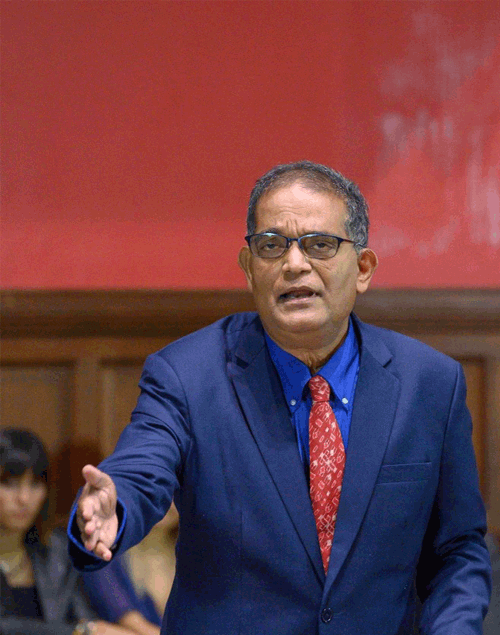
Amitav Acharya is the UNESCO Chair in Transnational Challenges and Governance and Distinguished Professor at the School of International Service, American University, Washington, DC. Previously he was a Professor at York University, Toronto and University of Bristol, U.K. He was the inaugural Nelson Mandela Visiting Professorship in International Relations at Rhodes University, South Africa, the inaugural Boeing Company Chair in International Relations at the Schwarzman Scholars Program at Tsinghua University, Fellow of Harvard’s Asia Center and John F. Kennedy School of Government, and Christensen Fellow at Oxford. His books include The Making of Global International Relations (Cambridge 2019: with Barry Buzan); Constructing Global Order (Cambridge 2018); The End of American World Order (Polity 2014, 2018); Why Govern? Rethinking Demand and Progress in Global Governance (editor, Cambridge 2016); The Making of Southeast Asia (Cornell 2013); Whose Ideas Matter (Cornell 2009); and Constructing a Security Community in Southeast Asia (Routledge, 2001, 2009, 2014).
What Kind of World Order? Unipolar, Multipolar, "Post-American" or Multiplex
April 15, 2022 • 6:00 pm
Edwards Hall 112
While many leaders, scholars and pundits see the world entering into a “multipolar”,
or “post-American” phase, Professor Acharya argues that it will be a Multiplex World.
In this world, there are no dominant producers, directors, actors or scripts. The
US will remain a key player but will no longer enjoy global dominance. At the same
time, leadership in the world will be more diverse, with several countries, non-state
actors and regional blocs taking on greater roles to manage different issues areas
in their own regions and the world at large. The power shift from the West to the
Rest will continue. Economic and political interdependence among nations will not
end but take on new forms. Such a world would face perils such as climate change and
pandemics, but it is too soon to call it a “world on fire”. New ways of managing peace
and stability will emerge due to a common imperative of all to survive and prosper.
